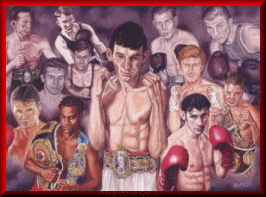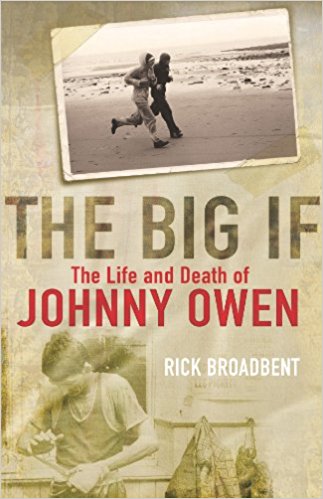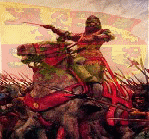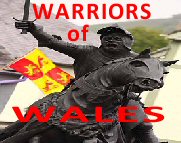|
Owain
Glyndŵr lived over 600 years ago and yet today remains one of
the most heroic figures in Welsh history. Owain was a natural
leader and an astute statesman who united and led the Welsh
against English rule. However, in some senses Owain was the
spark that ignited the Welsh discontent about specific issues in
Wales, many dating from the death of
Llywelyn the Last, who was
killed in 1282.
Iolo Goch, in many respects Glyndŵr’s household poet, provides
us with an indication of Glyndŵr’s respect for the labouring
class in his poem to the ploughman. Iolo praises his fundamental
role in society – ‘Nid bywyd, nid byd heb ef’ / ‘there is no
life, no world without him.’ The fact that Welsh labourers left
their livings and returned from England to support Owain Glyndŵr
is evidence of his charismatic influence as the leader of a
Wales free from the yoke of English rule.
It is not certain when or where Owain Glyndŵr was
born - possible dates are 1349, 1354 or 1359 and the two most
likely places are the family home at Sycharth, near Croesowallt
(Oswestry), or
in Trefgarn, Pembrokeshire where one story says that his mother
was visiting at the time of his birth. Owain’s family had
estates at Sycharth, Iscoed in the Teifi Valley, and Glyndyfrdwy,
in the Dee Valley. Iscoed was inherited by his mother, Elen,
whilst Glyndyfrdwy was described as a ‘fine lodge in the park.’
He probably spent much of his childhood at the family home of
Sycharth.
His lineage, a vitally important factor to Welsh
people in the fourteenth century, was impeccable. When
Owain Lawgoch
was killed by
an English assassin in 1378, the male line of the Gwynedd
dynasty, which had led the resistance against the Anglo Norman
invaders since the 11th century, ended. Owain claimed direct
descent from the two other major Welsh dynasties, the princes of
Powys in Mid Wales and Deheubarth in South-West Wales. On his
father’s side, he could trace his ancestry back to Bleddyn ap
Cynfyn, ruler of Powys in the eleventh century, while his
mother’s lineage stretched back to Rhys ap Tewdwr, Prince of
Deheubarth in the late eleventh century.
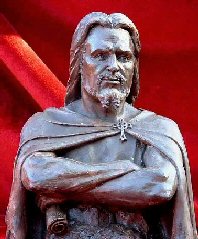 In the 1380s and 1390s Glyndŵr studied law at the
Inns of Court in London. This decision was almost certainly
prompted by his father in law, Sir David Hanmer, an English
judge who settled in Wales following his marriage to Angharad,
the daughter of Llywelyn Ddu ap Gruffudd ab Iorwerth Foel, one
of the most prominent Welshmen in nearby Chirkland. One of their
holdings was the village of Hanmer, which they took as the
family name, and Owain was married in the village church to
David's daughter Marred. In the 1380s and 1390s Glyndŵr studied law at the
Inns of Court in London. This decision was almost certainly
prompted by his father in law, Sir David Hanmer, an English
judge who settled in Wales following his marriage to Angharad,
the daughter of Llywelyn Ddu ap Gruffudd ab Iorwerth Foel, one
of the most prominent Welshmen in nearby Chirkland. One of their
holdings was the village of Hanmer, which they took as the
family name, and Owain was married in the village church to
David's daughter Marred.
In September 1400, Owain Glyndŵr
embarked on a
course of action that would become one of the most dramatic
episodes in Welsh history. His longstanding quarrel with
Reginald de Grey of Ruthin over some common land took a
surprising turn when
Owain marched on Ruthin thereby
instigating the Welsh Revolt against the rule of Henry IV of
England.
After destroying the town, Owain went on to attack towns all
over north-east Wales as the revolt turned into a full scale war
with the English crown. Welshmen from all walks of life flocked
to join Owain's cause, and by 1403 nearly the whole of Wales was
united behind Glyndŵr. For a while, it seemed that the vision of
an independent Wales had not died with
Llywelyn ap Gruffudd
in
1282 after all.
These
events led to Owain formally assuming his ancestral title of
Prince of Powys on 16 September 1400. With a small band of
followers which included his eldest son, his brothers-in-law,
and the Bishop of St Asaph in the town of Corwen, he launched an
assault on Lord Grey's territories.
After a
number of initial confrontations between King Henry IV and
Owain's followers in September and October 1400, the revolt
began to spread in 1401. Much of northern and central Wales went
over to Owain. Henry IV appointed Henry Percy – the famous
"Hotspur" – to bring the country to order. Hotspur issued an
amnesty in March which applied to all rebels with the exception
of Owain and his cousins, Rhys ap Tudur and Gwilym ap Tudur,
sons of Tudur ap Gronw (forefather of King Henry VII of
England).
In 1402, the English Parliament issued the Penal
Laws against Wales, designed to establish
English dominance in Wales, but actually pushing
many Welshmen into the rebellion. In the same
year, Owain captured his arch enemy, Baron Grey
de Ruthyn. He was to hold him for almost a year
until he received a substantial ransom from
Henry.
In June 1402, Owain defeated an English force
led by Sir Edmund Mortimer at the Battle of Bryn
Glas, and Mortimer was captured. Glyndŵr offered
to release Mortimer for a large ransom but, in
sharp contrast to his attitude to de Grey, Henry
IV refused to pay. Mortimer's nephew could be
said to have had a greater claim to the English
throne than Henry himself, so his speedy release
was not an option. In response, Mortimer
negotiated an alliance with Owain and married
one of Owain's daughters. It is also in 1402
that mention of the French and Bretons helping
Owain was first heard. The French were certainly
hoping to use Wales as they had used Scotland:
as a base to fight the English.
In 1403 the revolt became truly national in
Wales. Royal officials reported that Welsh
students at Oxford University were leaving their
studies to join Owain, and Welsh labourers and
craftsmen were abandoning their employers in
England and returning to Wales. Owain could also
draw on Welsh troops seasoned by the English
campaigns in France and Scotland. Hundreds of
Welsh archers and experienced men-at-arms left
English service to join the rebellion.
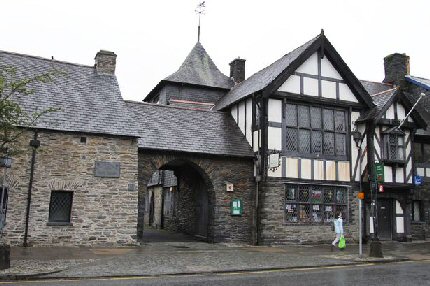 In 1404, Owain held court at Harlech and
appointed Gruffudd Young as his Chancellor. Soon
afterwards, he called his first Parliament (or
Cynulliad or "gathering") of all
Wales at Machynlleth, where he was crowned
Prince of Wales and announced his national
programme. He declared his vision of an
independent Welsh state with a parliament and
separate Welsh church. There would be two
national universities (one in the south and one
in the north) and a return to the traditional
law of Hywel Dda. Senior churchmen and important
members of society flocked to his banner.
English resistance was reduced to a few isolated
castles, walled towns and fortified manor
houses. In 1404, Owain held court at Harlech and
appointed Gruffudd Young as his Chancellor. Soon
afterwards, he called his first Parliament (or
Cynulliad or "gathering") of all
Wales at Machynlleth, where he was crowned
Prince of Wales and announced his national
programme. He declared his vision of an
independent Welsh state with a parliament and
separate Welsh church. There would be two
national universities (one in the south and one
in the north) and a return to the traditional
law of Hywel Dda. Senior churchmen and important
members of society flocked to his banner.
English resistance was reduced to a few isolated
castles, walled towns and fortified manor
houses.
However, despite these astounding early victories the rebellion
would ultimately fail as
it suffered from key
weaknesses – particularly a lack of artillery, which made
capturing defended fortresses difficult, and of ships, which
made their coastlands vulnerable. The uprising was eventually
suppressed by the superior resources of the English.
By 1408, the revolt was dwindling as swiftly as
it had swept into being; by 1410, its inspirational leader had
become a fugitive.
Glyndŵr
avoided capture and
the last documented sighting of him was in 1412. He twice
ignored offers of a pardon from the new king Henry V of England,
and despite the large rewards offered, Glyndŵr was never
betrayed to the English.
It is not known for certain what happened to him after the
revolt, he simply disappeared.
With his
disappearance Owain
Glyndŵr
acquired a mythical
status as the hero awaiting the call to return and liberate his
people.
Mab Darogan.
Historically, the English royal
family has bestowed the title of ‘Prince of Wales’ upon the
male heir to the English throne thus his emblem, the Prince of Wales
feathers ('Welsh' feathers), has mistakenly become associated with
Wales. The
feathers are simply the heraldic badge of an English prince, who
happens to be given the title of Prince of Wales because he is next in
line to the English throne. Neither he nor the feathers are Welsh. see 3 FEATHERS 2 FINGERS Fe Godwn Ni Eto
Source:
Canolfan Owain Glyndwr
Source:
Wikipedia
|
|
 In 1404, Owain held court at Harlech and
appointed Gruffudd Young as his Chancellor. Soon
afterwards, he called his first Parliament (or
Cynulliad or "gathering") of all
Wales at Machynlleth, where he was crowned
Prince of Wales and announced his national
programme. He declared his vision of an
independent Welsh state with a parliament and
separate Welsh church. There would be two
national universities (one in the south and one
in the north) and a return to the traditional
law of Hywel Dda. Senior churchmen and important
members of society flocked to his banner.
English resistance was reduced to a few isolated
castles, walled towns and fortified manor
houses.
In 1404, Owain held court at Harlech and
appointed Gruffudd Young as his Chancellor. Soon
afterwards, he called his first Parliament (or
Cynulliad or "gathering") of all
Wales at Machynlleth, where he was crowned
Prince of Wales and announced his national
programme. He declared his vision of an
independent Welsh state with a parliament and
separate Welsh church. There would be two
national universities (one in the south and one
in the north) and a return to the traditional
law of Hywel Dda. Senior churchmen and important
members of society flocked to his banner.
English resistance was reduced to a few isolated
castles, walled towns and fortified manor
houses.
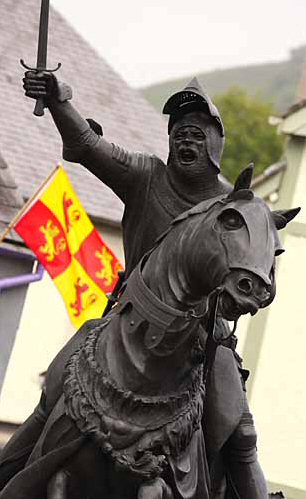
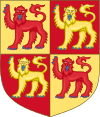
 In the 1380s and 1390s Glyndŵr studied law at the
Inns of Court in London. This decision was almost certainly
prompted by his father in law, Sir David Hanmer, an English
judge who settled in Wales following his marriage to Angharad,
the daughter of Llywelyn Ddu ap Gruffudd ab Iorwerth Foel, one
of the most prominent Welshmen in nearby Chirkland. One of their
holdings was the village of Hanmer, which they took as the
family name, and Owain was married in the village church to
David's daughter Marred.
In the 1380s and 1390s Glyndŵr studied law at the
Inns of Court in London. This decision was almost certainly
prompted by his father in law, Sir David Hanmer, an English
judge who settled in Wales following his marriage to Angharad,
the daughter of Llywelyn Ddu ap Gruffudd ab Iorwerth Foel, one
of the most prominent Welshmen in nearby Chirkland. One of their
holdings was the village of Hanmer, which they took as the
family name, and Owain was married in the village church to
David's daughter Marred.